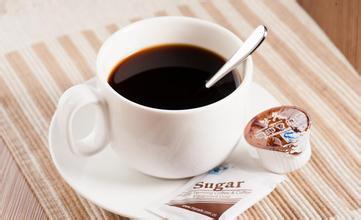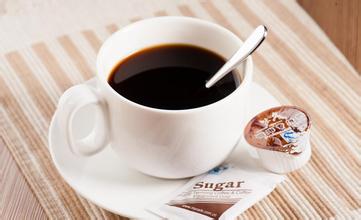Introduction to the flavor and taste of Salvadoran coffee manor
El Salvador implements a representative democratic republic system with separation of powers. The president and vice president are directly elected by the whole country and cannot be re-elected. Judicial power is exercised by the Supreme Court and the Attorney General's Office. [1]
Constitution
El Salvador's Constitution came into force on December 23, 1983. The Constitution sets forth the country's political system, the method of presidential election, the exercise of legislative and judicial power, etc.; it specifically stipulates that presidential candidates can be elected if they get more than 50% of the votes in the first round, otherwise, a second round of voting will be held between the top two candidates with the most votes. [1]
Parliament
El Salvador's unicameral National Assembly has 84 members, 64 of whom are divided into provinces.
San Salvador
San Salvador
Proportional distribution, the remaining 20 regardless of provincial origin, determined by the number of votes, term of office of 3 years, can be re-elected. The most recent parliament was established in May 2015 and will serve until April 2018, with 35 seats for the Nationalist Republican Alliance, 31 seats for the Martí Front, 11 seats for the Grand Union of National Unity, 4 seats for the National Reconciliation Party and 3 seats for other parties; the speaker is Lorena Peña of the Martí Front and will serve until November 7, 2016, after which Guillermo Gallegos, a member of the Grand Union of National Unity, will replace the speaker until April 2018. [1]
government
El Salvador's most recent government was formed in June 2014. The main Cabinet members are: Vice President Oscar Ortiz Oscar Ortiz, Minister for Foreign Affairs Hugo Roger Martinez Bonilla Hugo Roger Martínez Bonilla, Minister of Finance Carlos Caceres Carlos Cáceres, Minister of Economy, Tacis Salomon Lopez Tharsis Salomón López, Minister of Defense David Mungia Payes David Munguía Payés, Minister of Labour and social protection Sandra Ediwell Guevara Perez Sandra Edibel Guevara Pérez, Minister of Agriculture (Orestes Ortez), Public Health Minister Violeta Menjívar (female), Public Works, Transport, Housing and Urban Development Minister Gerson Martínez, Environment and Natural Resources Minister Lina Pohl, Tourism Minister José Napoleón Duarte. [1]
judicial
Judicial power in El Salvador is exercised by the Supreme Court, the Office of the Attorney-General, etc. The Supreme Court consists of 15 judges (including the President) elected by Parliament. The President of the Supreme Court is elected for a term of five years and may be re-elected. Judges are elected for a term of nine years and one third of them are elected every three years. The Attorney General is elected by Parliament for a term of three years and may be re-elected. Supreme Court President Oscar Armando Pineda Navas, inaugurated in August 2014. Attorney General Sonia Elizabeth Cortés de Madriz (Female, Sonia Elizabeth Cortéz de Madriz), took office in January 2010 and was re-elected in January 2013. El Salvador's fine coffee is concentrated in Santa Ana in the west and Charantan Nango volcanic rock producing areas in the northwest. Almost all of the top ten cup tests in recent years come from these two producing areas, with an altitude of about 900-1500 meters, mainly Bourbon (accounting for 68%). Pakas followed (29%), while mixed Pakamara, Duraai and Kadura accounted for only 3%.
The coffee harvest lasts from November to March. All are hand-picked to harvest fresh coffee.
Generally speaking, Salvadoran coffee inherits the mild quality of Central American coffee, which is soft, slightly sour and has a good sweetness. At the same time, it has its own characteristics: aromatic taste slightly sour, very soft; pure without impurities, taste balance is excellent; smooth feeling like cream chocolate is impressive; coffee in the mouth that kind of dense feeling makes coffee have a deep taste, long aftertaste Don't underestimate Salvador's coffee production. In its heyday, it was the fourth largest coffee producer in the world, but decades of civil war almost brought down the coffee industry. Fortunately, the war stopped in recent years and the coffee industry recovered. The only benefit of the civil war for El Salvador was that farmers left their fields barren and could not catch up with the most popular Catimo train of cultivation in the past two decades, thus preserving the ancient bourbon and tibeka varieties. In other words, El Salvador still cultivated in the most traditional shade method, which had a positive effect on the aroma of coffee. In 2005, the Salvadoran hybrid Pacamara showed off at the coe, which made many international cup testers confused and did not know how to grade it. Unexpectedly, this hybrid bean not only broke the existing aromatic boundaries of coffee, but also expanded the visibility of Salvadoran coffee.

Important Notice :
前街咖啡 FrontStreet Coffee has moved to new addredd:
FrontStreet Coffee Address: 315,Donghua East Road,GuangZhou
Tel:020 38364473
- Prev

Introduction to the characteristics of fine coffee beans in Uganda coffee flavor and taste manor area
After the first World War, the long-standing dissatisfaction of the Ugandan people with colonial rule finally broke out. A national general strike and rural riots broke out in 1918. In 1919 Buganda launched a democratic movement under the leadership of the Bataka Party and the African Farmers' Union of Uganda. In 1921, Uganda's first national political party, the Ugandan National Congress Party, was established and proposed the implementation of universal suffrage.
- Next

Taste clean and bright Nicaraguan coffee flavor manor features boutique coffee introduction
The National Assembly of Nicaragua is unicameral and consists of 90 members for a term of five years. The Speaker has a term of office of one year and is eligible for re-election. The current Parliament was formed in January 2012, with 62 seats in the SPLF and 28 seats in the Independent Liberal Party. The current Speaker, Rene Nunez, was elected in 2007 and has been re-elected ever since. In January 2012, a new government was formed in Nicaragua. The main members are: vice President Omar Ayesley
Related
- Detailed explanation of Jadeite planting Land in Panamanian Jadeite Manor introduction to the grading system of Jadeite competitive bidding, Red bid, Green bid and Rose Summer
- Story of Coffee planting in Brenka region of Costa Rica Stonehenge Manor anaerobic heavy honey treatment of flavor mouth
- What's on the barrel of Blue Mountain Coffee beans?
- Can American coffee also pull flowers? How to use hot American style to pull out a good-looking pattern?
- Can you make a cold extract with coffee beans? What is the right proportion for cold-extracted coffee formula?
- Indonesian PWN Gold Mandrine Coffee Origin Features Flavor How to Chong? Mandolin coffee is American.
- A brief introduction to the flavor characteristics of Brazilian yellow bourbon coffee beans
- What is the effect of different water quality on the flavor of cold-extracted coffee? What kind of water is best for brewing coffee?
- Why do you think of Rose Summer whenever you mention Panamanian coffee?
- Introduction to the characteristics of authentic blue mountain coffee bean producing areas? What is the CIB Coffee Authority in Jamaica?

